On May 9, Ambassador Tom Pickering, in conversation with the JST’s Dov Zakheim, led a small group through the current landscape of US foreign policy issues. General James Jones, former National Security Advisor and board member of the JST, opened the meeting to introduce the latest issue of the Tribune to the group. The meeting was held at the Cosmos Club in Washington, DC.
Focusing on Putin and the Ukraine war, Pickering (former US ambassador to Russia, the UN, Israel and four other countries) admitted an attachment to diplomatic solutions. Pickering addressed not only current issues but also the nature of the diplomatic profession and the discourse among nations.
This war like others would end, he noted, with a political settlement, and that end won’t be Russia’s unconditional surrender. Reviewing in detail the situation of each party and the issues facing Europe, he thought not enough had been done in public, especially regarding the regional security aspects that would follow. He reviewed the different models of neutrality from Sweden and Switzerland to Cambodia and Timor. He concluded that we owe it to the brave Ukrainians to help end this war.
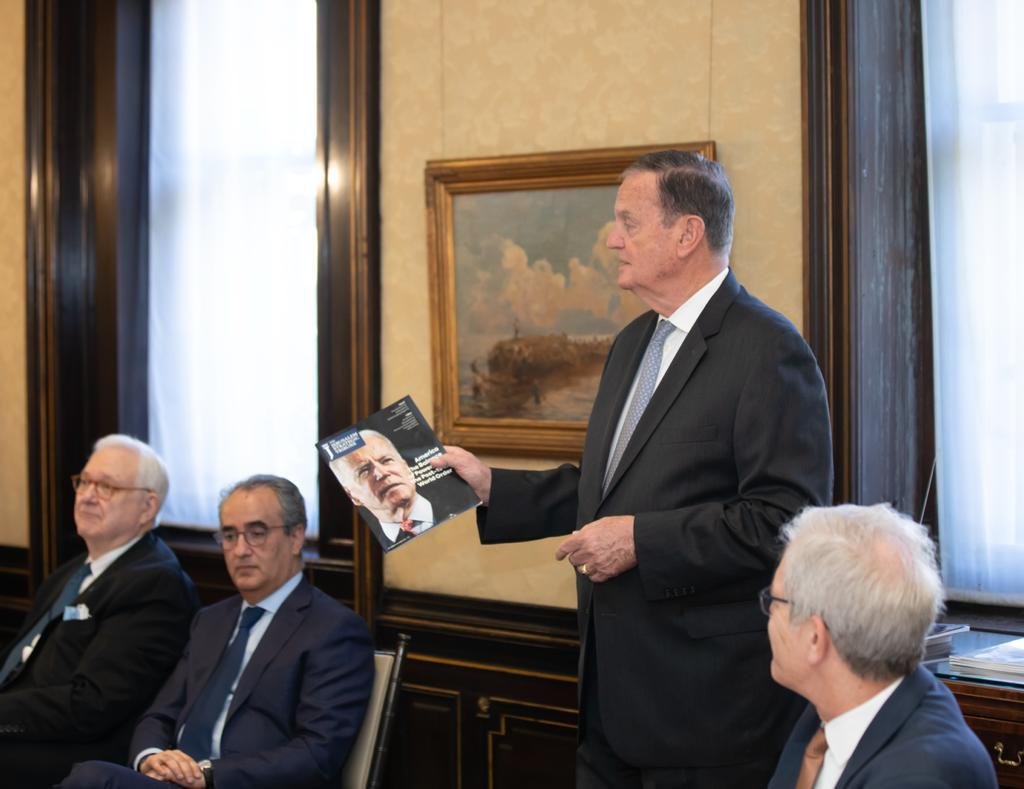
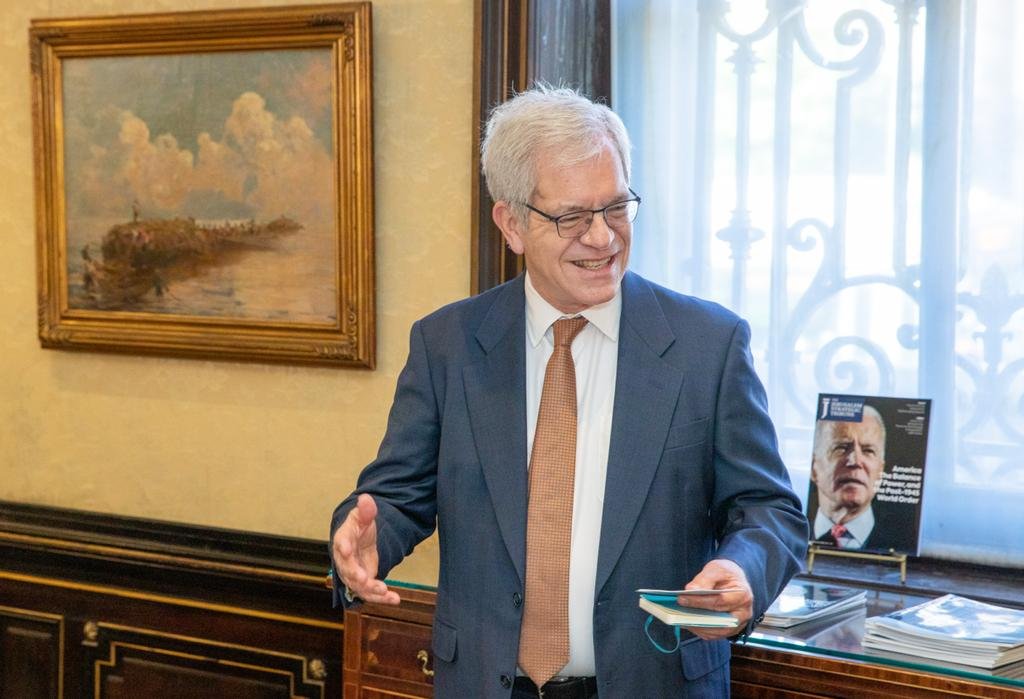
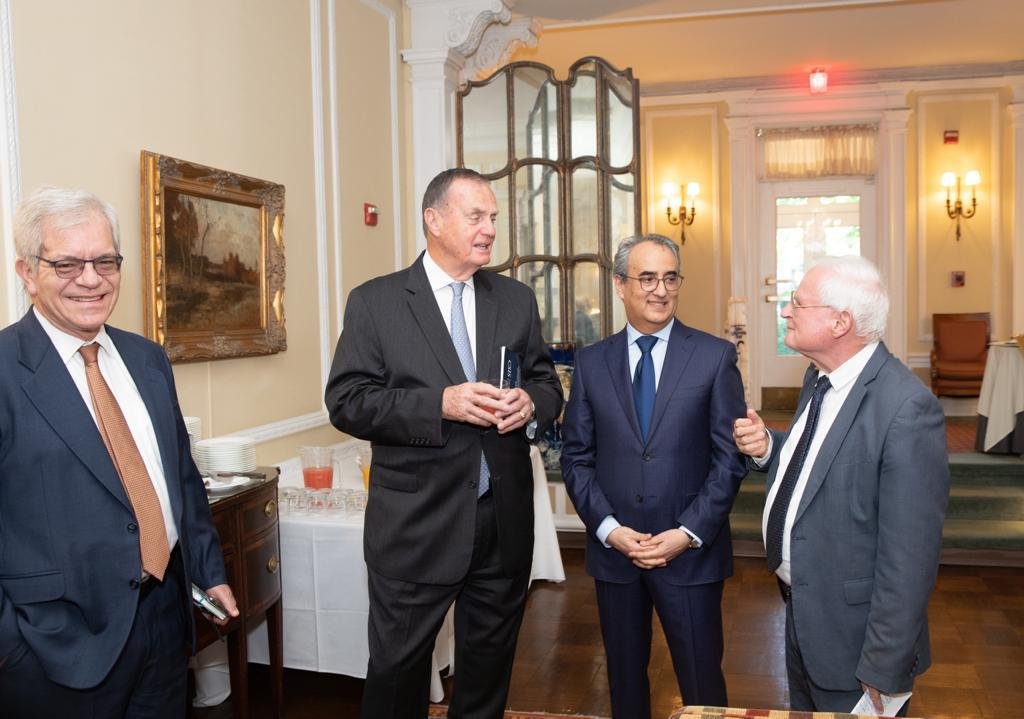
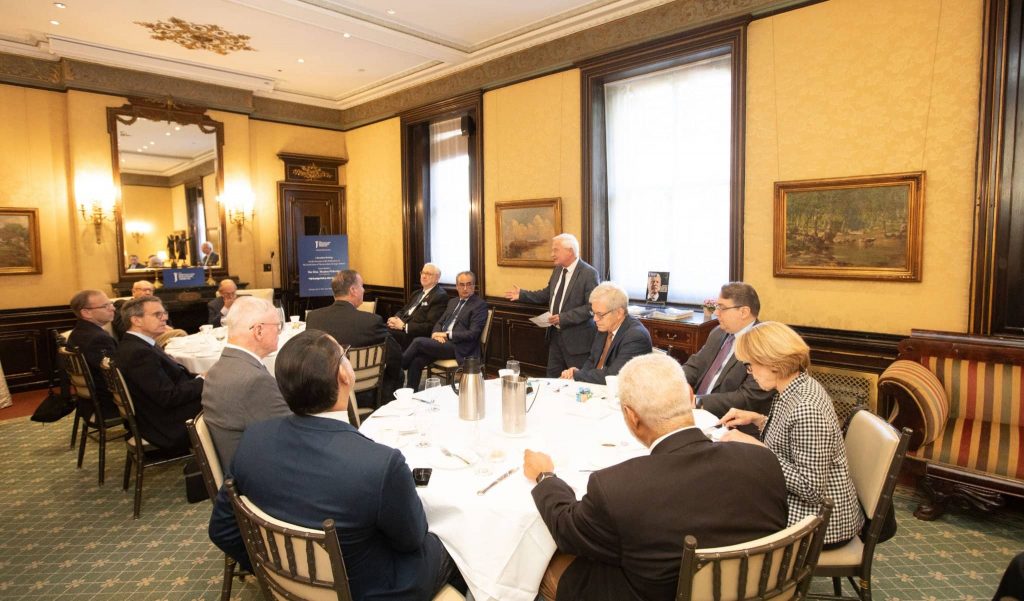
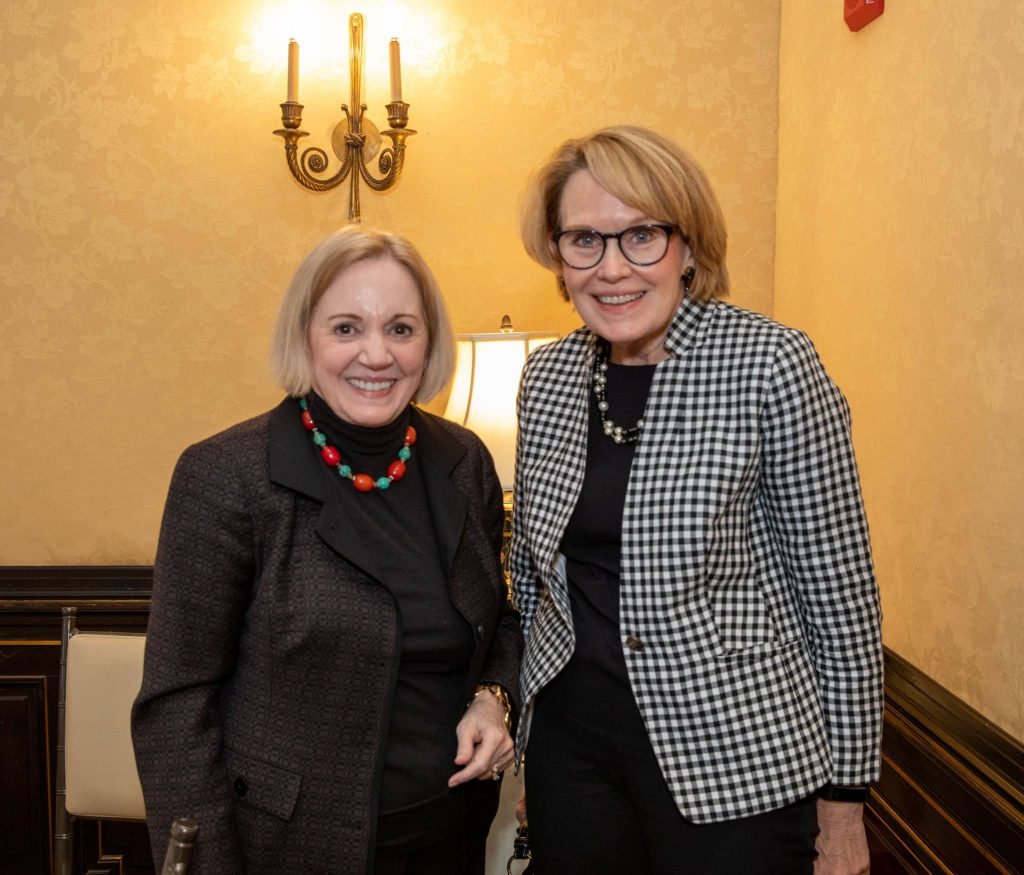
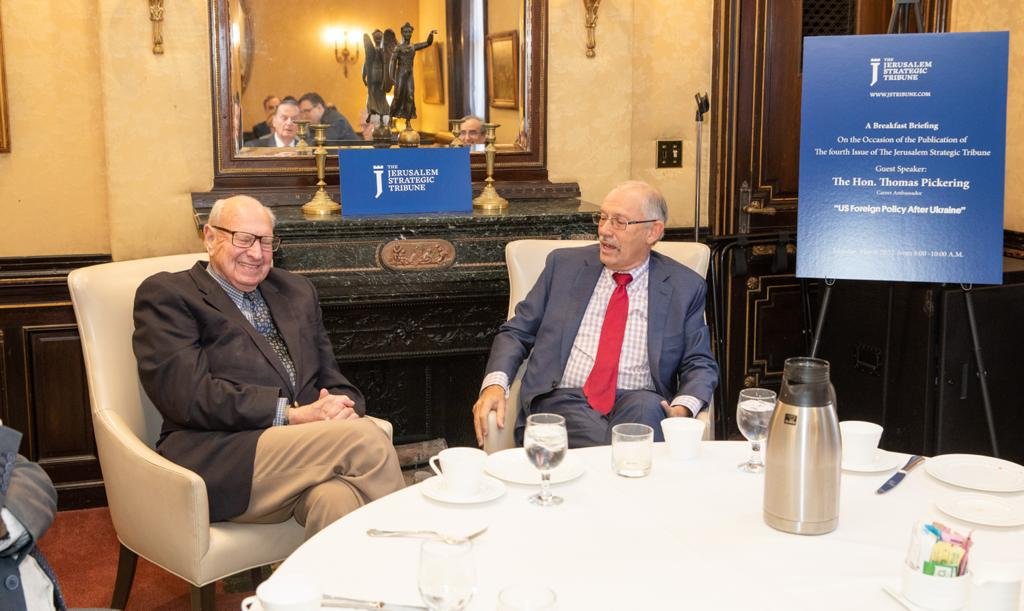
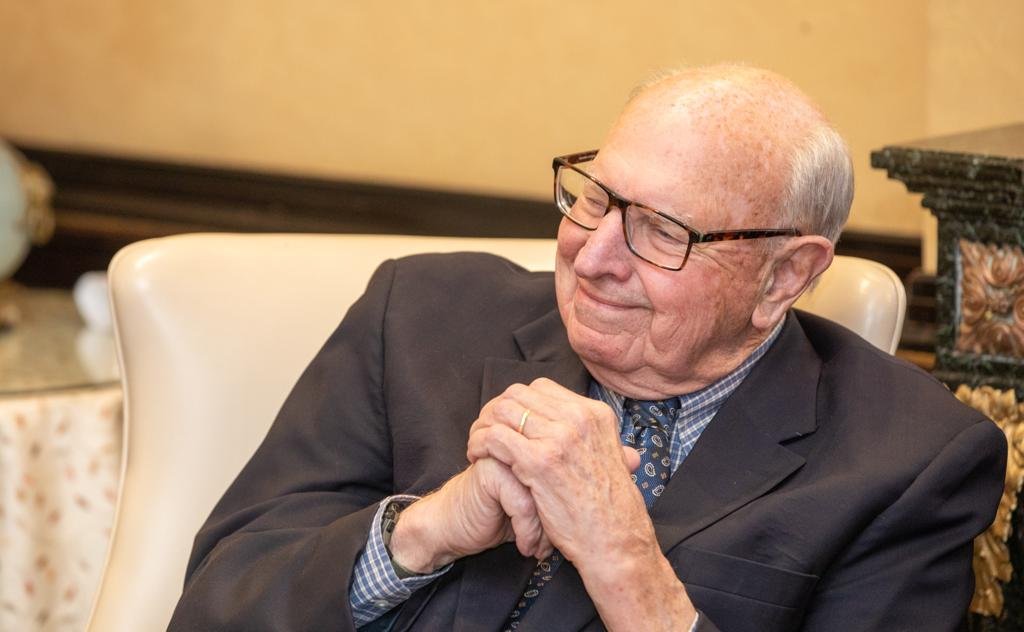
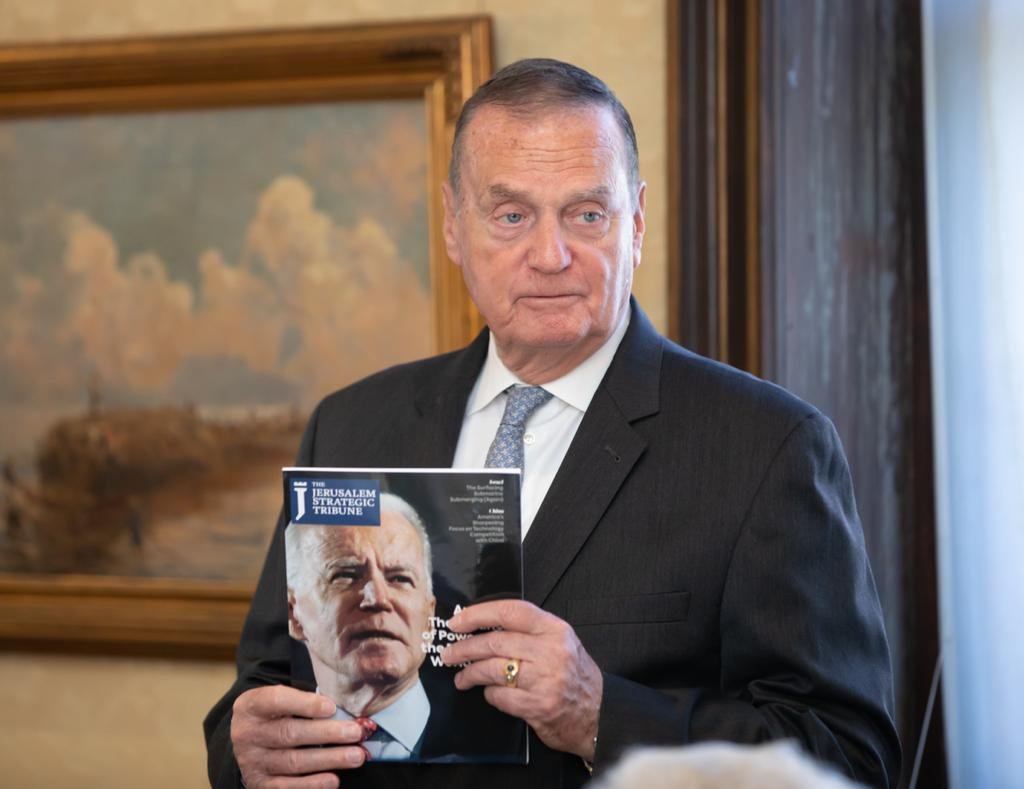
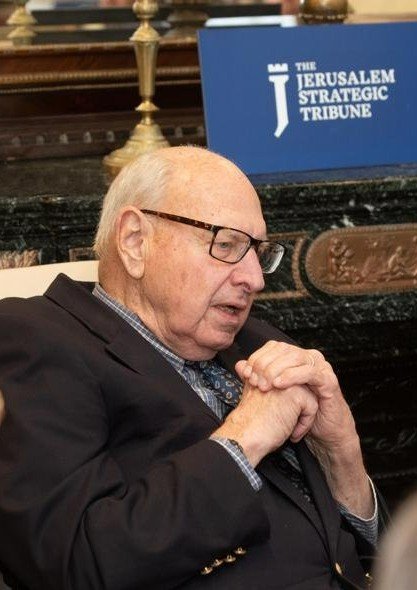
Pickering also warned against demonizing Russia. If Israel has a lesson for Americans, it is that you make peace with your enemies. And, he added, that creates a subterranean profession of how to deal with your enemies and to attempt to understand them.
Asked about the Eastern Mediterranean and the Middle East, Pickering (also a former Assistant Secretary of State for Oceans and the Environment) pointed to the potential of new desalination technologies as a way to re-focus countries on water cooperation and on economics not politics. Feeder pipelines and storage of water leads to confederal arrangements; if water is more confederal then eventually politics could be as well.
Pickering spent some time on the way the US engages with other countries and on the way to interpret others. He emphasized the need for prior consultation with allies. He thought characterizing the post-Cold War period as a unilateral moment (during which he was Under Secretary of Political Affairs at State) was exaggerated – both during and after the Cold War there was a critical consultative mechanism. He argued for a US approach of listening first and speaking last; not opening meetings with your views. He also emphasized a need for strategic planning that includes prioritization and has a budget attached to it to lend it credibility. But one’s strategy should not be always public in a way that gives a road map to one’s opponents.
Pickering had a three-part dictum to prepare for a diplomatic negotiation or meeting. First, focus on the other side’s statements, and ask yourself: What is the other side saying? Second, which is hard work, ask: What do they mean when they say this? Third, which is even harder: What will they settle for, on the basis of what they’ve been saying? Pickering applied this to several cases of his and others’ experiences in meetings with Russian leadership.
The JST hosts in-person discussions in both the US and Israel, featuring candid exchanges of views on foreign policy. The next session will be in late June in Jerusalem.

